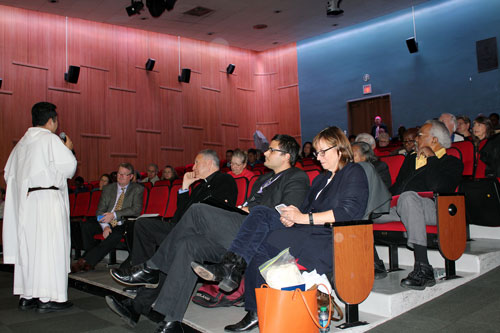
Having a conversation about end-of-life care is awkward and difficult, but it can help in making decisions about what matters most when the time comes.
That was the focus of “Journey to Healing: End of Life Conversations and the Catholic Perspective,” a free conference hosted by Catholic Charities Bereavement Services at St. Francis College, Brooklyn Heights, last Saturday, Nov. 7.
Now in its fourth year, the annual session offers information and resources on topics surrounding death and grief. This year, it was co-sponsored by Catholic Charities Brooklyn and Queens (CCBQ) and the diocesan Catholic Cemeteries.
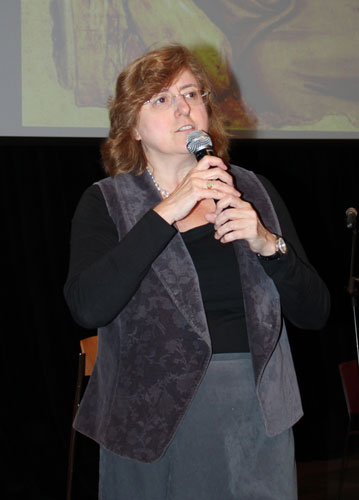
“This topic isn’t easy so you’re very brave to come out to open your heart and mind,” April Boone, bereavement services coordinator at CCBQ, told the nearly 140 people present. Many attendees were professional caregivers and members of bereavement support groups in diocesan parishes.
“We want to help people start communicating when they’re not in crisis,” Boone said.
One way is through The Conversation Project, a public engagement campaign dedicated to ensuring that everyone’s wishes for end-of-life care are expressed and respected.
Opening the Dialogue
Each participant received a conversation starter kit to help break the ice when approaching a discussion about end-of-life care as well as questions to spur further dialogue about advance care planning, healthcare proxies and living wills.
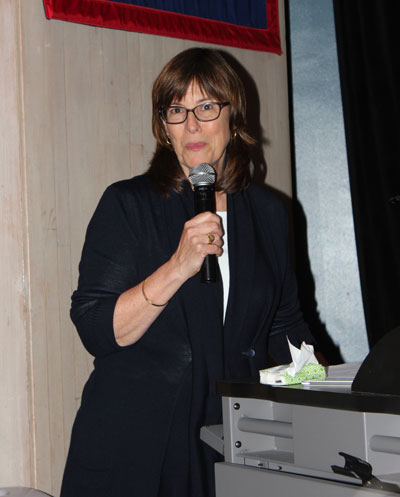
Rev. Rosemary Lloyd, an adviser to the project, asked attendees to practice having an exchange about their final wishes with fellow participants in small groups.
“I am hoping we can spread the conversation more, especially in congregations, which are safe, supportive environments for having these kinds of conversations,” said the Rev. Lloyd.
Father Nicanor Austriaco, O.P., a bioethicist and associate professor at Providence College, R.I., reminded those in attendance that for Catholics, the conversation needs to be not only about what a person would consider a good death, but also a holy death.
Participants viewed “Now and at the Hour of Our Death,” a New York State Catholic Conference video that features Father Austriaco speaking about end-of-life treatment decisions with dying persons and their families.
He addressed the most common fears associated with dying – pain, suffering and abandonment – and offered assurances about moral judgments regarding pain management, ordinary versus extraordinary treatments and benefits versus burdens.
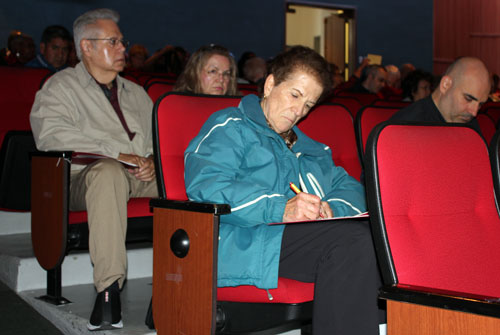
While no one wants to be a burden, the Dominican friar told attendees, “Being a burden is part of what it means to be human, and to deny that is to deny an incredibly important dimension of what it means to love one another and to be dependent on one another.”
He also suggested the National Catholic Bioethics Center as a free resource for individuals and caregivers needing guidance with ethical and moral decisions related to health care, especially in emergency situations. The center offers consultations and has a 24-hour hotline.
For those facing the end of life with a terminal disease, hospice care can be a welcome and comforting option for individuals and their families. Attendees had a chance to learn about hospice care from Jason von Bujdoss, a chaplain with Calvary Hospital’s home hospice program.
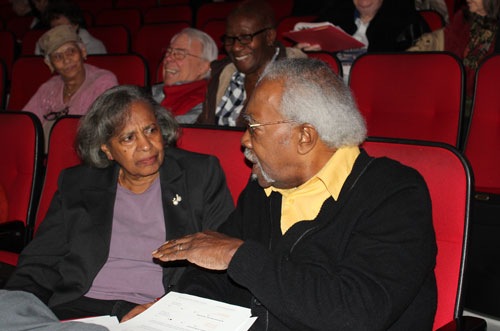
He spoke about what hospice is and what comfort care options are available through Calvary for individuals in their homes, nursing homes or in an inpatient setting.
“Hospice is a valuable process that gives us the opportunity to walk with one another – physically, emotionally and spiritually,” shared Msgr. Alfred LoPinto, diocesan vicar for human services and CEO of Catholic Charities.
Assisted-Suicide Legislation
Msgr. LoPinto spoke about the trend toward legitimizing physician-assisted suicide in light of California becoming the fifth state to do so last month. Similar legislation is coming down the pipeline in New York State as early as January, he said.
“If there is not a groundswell of opposition, it will pass,” he said.
Therefore, he urged participants to start talking with loved ones and friends about the Catholic perspective on “understanding the process of dying and the value inherent in it.”
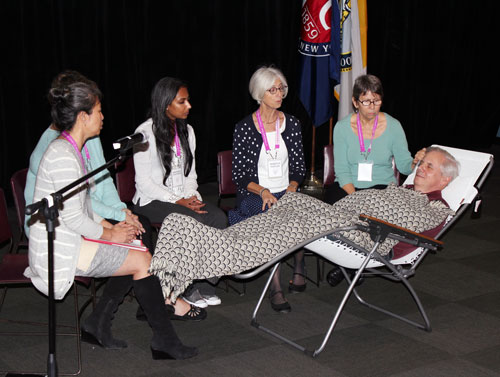
Following a question-and-answer session, the conference closed with the Threshold Choir of NYC demonstrating how its volunteers sing at the bedsides of the dying, and a blessing from Auxiliary Bishop James Massa.
Dyker Heights resident Joan Alagna attended the conference because she knows she won’t be around forever.
“I don’t want to think about me not being here, but it’s inevitable,” said Alagna, who attends St. Ephrem parish, Dyker Heights. “When the good Lord says, ‘Come on,’ you say ‘Ok.’”
Although she’s healthy and active at 78, the retired college counselor wants her family to know her wishes. Discussing this with her children has been a challenge in the past, she said, but the conversation starter kit will be a useful tool this time around.
“The information here will help me,” she said. “I’m going to go over it with my kid brother and then I’ll present it to my children.”
Irene Gopaul said she looks forward to sharing what she learned with her parish bereavement support group at Sacred Heart, Cambria Heights, but also in her own home.
“My husband and I have talked about this, and this will help us to go further,” said Gopaul, a retired nurse practitioner.
Though she has spoken with her husband and daughter about her last wishes, she realized after the conference that the conversation is only a starting point.
“What I need to do is to sit down and write it out,” she said. “Anything can happen at any time, and when it happens we need to know that we are prepared.”

Thank you for reporting on this very important and all too avoided subject. Compassion & Choices (the agency directing the Physician Assisted Suicide movement) has run a tremendously successful campaign to devalue human life when its truly vulnerable – that is sinful. Catholic Charities Bereavement Services of New York has done a fine job of using tools, available to a secular public, designed to help people of any religion make informed choices – that is to be commended. Reporting this story in The Tablet creates a greater awareness of the new war against human life (at end of life), which provides the Christian Community a real opportunity to work together to deliver a message of unity, respect and love.
Kevin Lundy
CEO
Divine Mercy Supportive Care
Denver, CO
Wow! Thank you! I constantly wanted to write on my blog something like that.
Can I take a part of your post to my site?